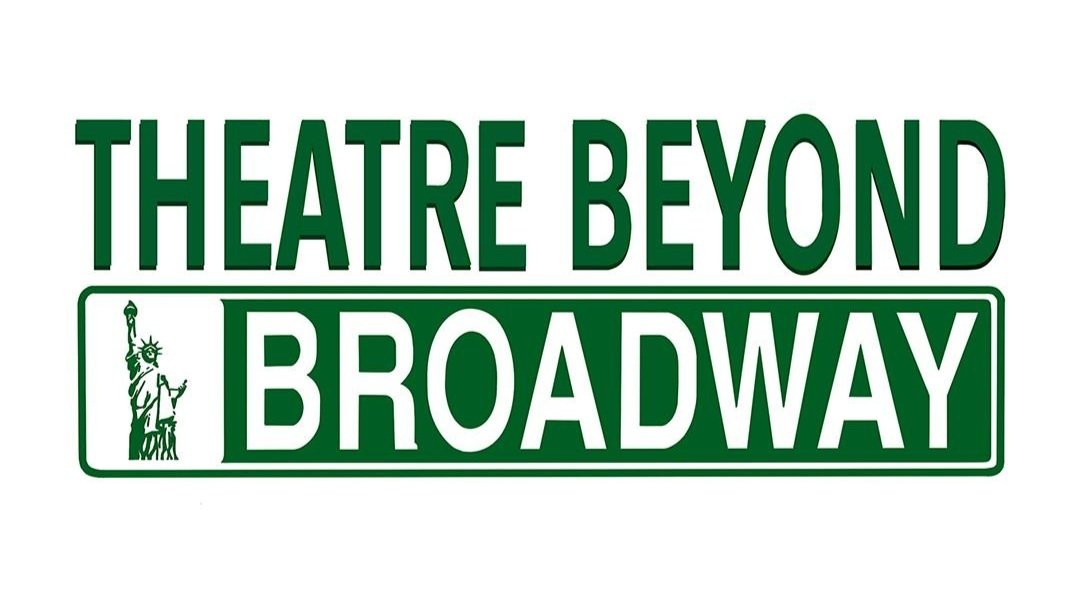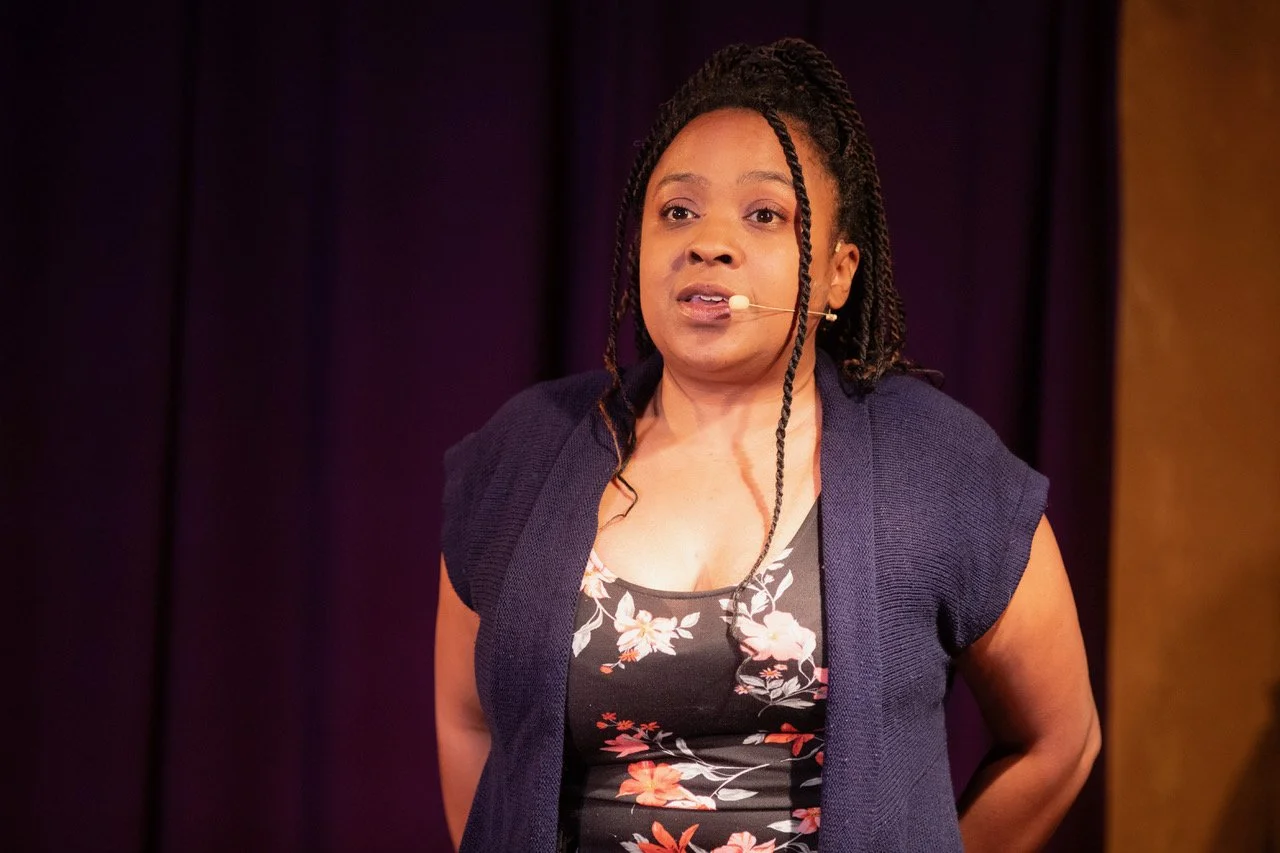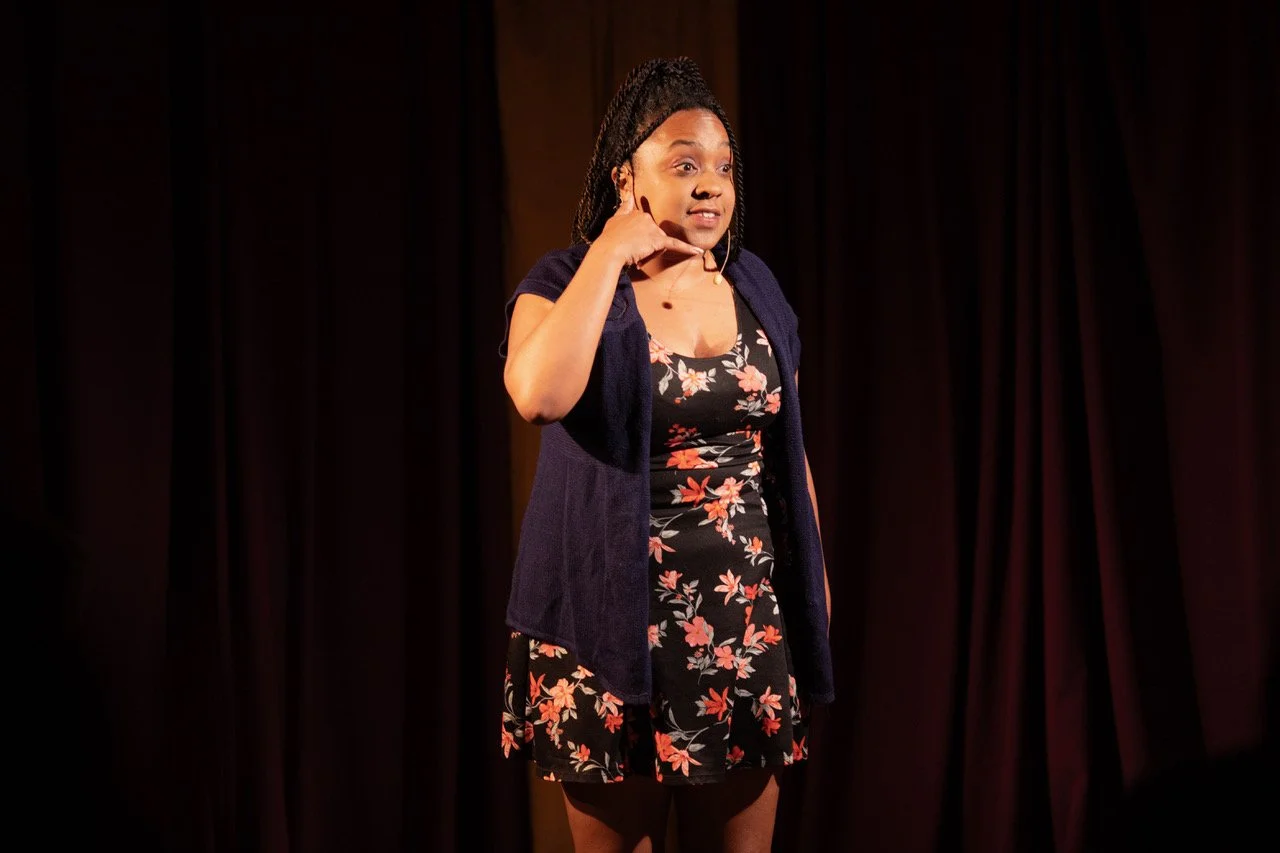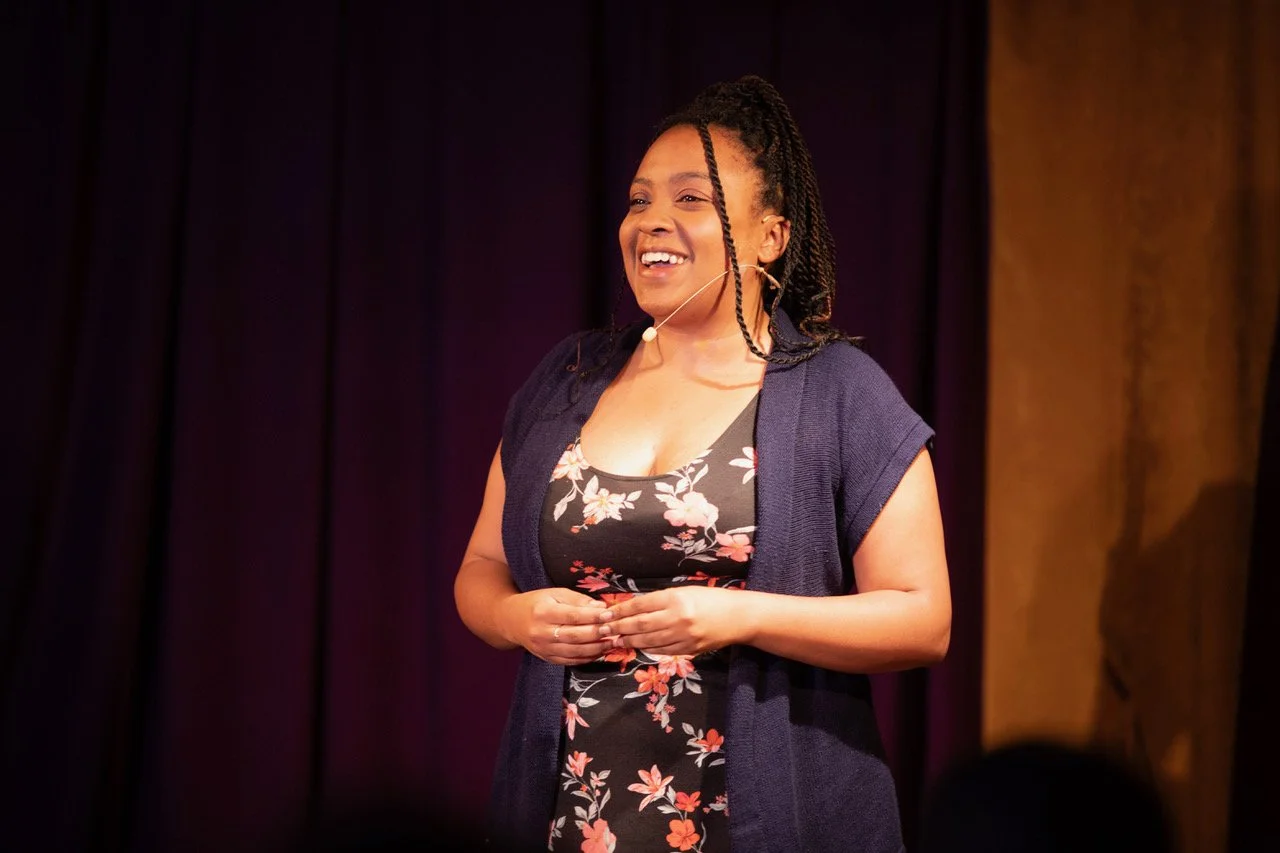Chanel Ali: Relative Stranger
Written & Performed by Chanel Ali; Directed by Ryan Cunningham
SoHo Playhouse | 15 Vandam St, NY, NY 10013
September 17 through September 28
Photo credit JT Anderson
In the realm of solo performance, where confessional storytelling meets theatrical craft, it is often not the novelty of the premise but the specificity of its telling that leaves a lasting impression. Such is the case with comedian Chanel Ali’s compelling hour-long piece Relative Stranger, a deeply personal excavation of her tumultuous upbringing, her search for her biological father, and the complex tapestry of familial bonds that both haunt and sustain her. Yes, the contours of the story may feel familiar—the foster child turned adult in search of answers—but Ali’s rendition is anything but rote. Wielding both pathos and punchlines, she brings to life a story that oscillates between harrowing trauma and laugh-out-loud levity, never tipping too far into either.
The show opens on a delightfully off-kilter note, as Ms. Ali recounts a childhood moment of confusion between Oz, the harrowing HBO prison drama, and The Wiz, the exuberant, disco-infused retelling of The Wizard of Oz starring none other than Michael Jackson. It’s a clever, culturally astute bit that immediately signals the show’s tonal agility—one that dances between levity and gravity with ease. The joke lands not merely because of its surface-level absurdity (imagine expecting Diana Ross dancing on a yellow brick road and instead getting maximum security lock-up and male-on-male shower scenes), but because it quietly encapsulates a larger theme that runs through the hour: the porous, often chaotic boundaries between fantasy and reality in a childhood marked by instability. With this quick-witted anecdote, Ali establishes herself as both sharp observer and charismatic narrator, unafraid to mine the surreal humor embedded in even the most formative—and confusing—of moments.
Before the titular stranger—the father she never knew—enters the frame, Ali guides us through a crucible of maternal dysfunction and generational grief. At just two years old, she was removed from the care of her mother, a woman grappling with drug addiction and a recent schizophrenia diagnosis. In one of the show’s many ironies, Ali notes that her mother had actually achieved sobriety before her birth, a brief window of stability ultimately overshadowed by relapse and loss. This complicated maternal absence segues into an even more fraught presence: her grandmother, who took her in while battling her own crack addiction. The woman who raised her—abusive, addicted, and paradoxically beloved—is rendered with poignant complexity. Ali refuses the simple dichotomies of villain and victim, offering instead a portrait steeped in contradiction and, remarkably, compassion.
When Ali finally learns the identity of her biological father at age 18—thanks to a court-mandated DNA test—the plot thickens. Her father, as it turns out, is a police officer in New Jersey, and the task of locating him in the pre-Facebook era becomes its own odyssey. Through a series of dogged cold calls to various precincts, Ali eventually tracks him down, initiating a tentative relationship that begins with cautious optimism but frays as she confronts his inability—or unwillingness—to reckon with the past. Here, Ali demonstrates a deft hand in her narrative pacing, slowly peeling back the layers of disappointment and longing with emotional precision.
Yet the title Relative Stranger proves to be a multifaceted one. A second revelation—less fraught, more serendipitous—comes courtesy of a 23andMe (a popular DNA and genetics company) test, a perk from Ali’s appearance in a Kevin Hart-produced commercial. Through it, she discovers a brother she never knew existed, stationed at the time in Bahrain as a member of the military. Their eventual meeting, filled with a palpable sense of kinship and ease, injects a buoyant note into the show’s latter half. Ali briefly gestures toward the age-old nature-versus-nurture debate, an undercurrent that lingers thoughtfully without being overemphasized.
From a formal standpoint, Relative Stranger leans heavily on the architecture of stand-up, with its rhythm of setups and punchlines intact. The stage is spare—just a stool stage right (designed by Christine Page)—allowing the focus to remain squarely on Ali’s words and presence. Still, director Ryan Cunningham introduces just enough theatrical flourish to lift the piece beyond mere extended comedy set. Costume designer Brandi Denise outfits Ali in a vividly colored top that pops against the muted background, visually echoing the brightness she brings to otherwise shadowed recollections. Dan Robinson’s lighting and sound design is judicious but effective: lighting shifts subtly to delineate characters in dialogue, while a well-placed snippet of Bill Withers’s “Grandma’s Hands” adds emotional resonance to a key transitional moment.
Ultimately, what makes Relative Stranger sing is Ali herself—a performer of considerable charm and intelligence who knows exactly when to dial up the comedy and when to allow silence or sincerity to settle in. Her wit is dry, observational, and never forced. Take, for instance, her throwaway line about preferring Matilda to Annie in the pantheon of orphan narratives—a sly bit of cultural critique disguised as a joke. Or her tongue-in-cheek self-reference as “a cocoa Chanel”—a brief moment of levity that feels both earned and endearing.
One senses that Ali could, if she wished, contextualize her story within broader conversations about the foster care system, addiction, and generational trauma. Yet she resists that impulse, choosing instead to remain anchored in the specifics of her lived experience. For some, that restraint will be a missed opportunity; for others, it will read as a welcome avoidance of the didactic. Either way, the choice feels deliberate—and honest.
Relative Stranger may not rewrite the rules of solo autobiographical performance, but in Ali’s capable hands, it doesn’t need to. It is a generous, sharply observed, and emotionally resonant piece of storytelling—proof that even the most familiar stories, when told with clarity and nuance, can still surprise us.
Click HERE for tickets.
Review by Tony Marinelli.
Published by Theatre Beyond Broadway on September 22, 2025. All rights reserved.



